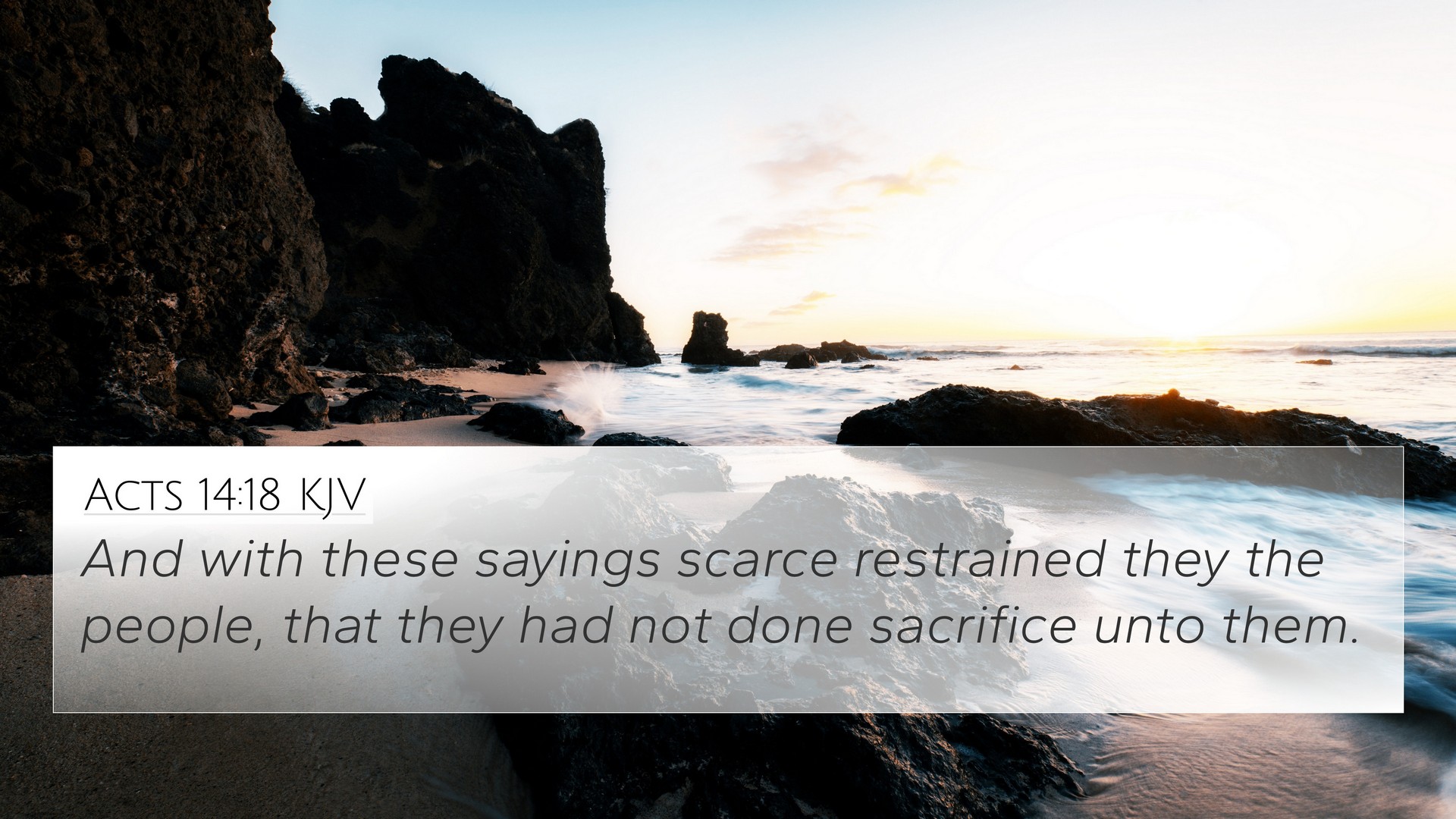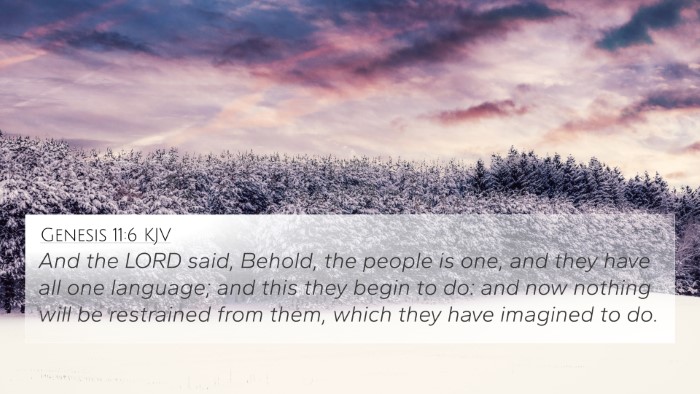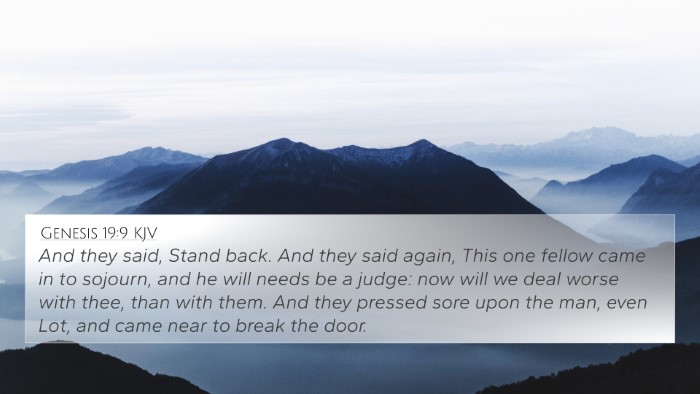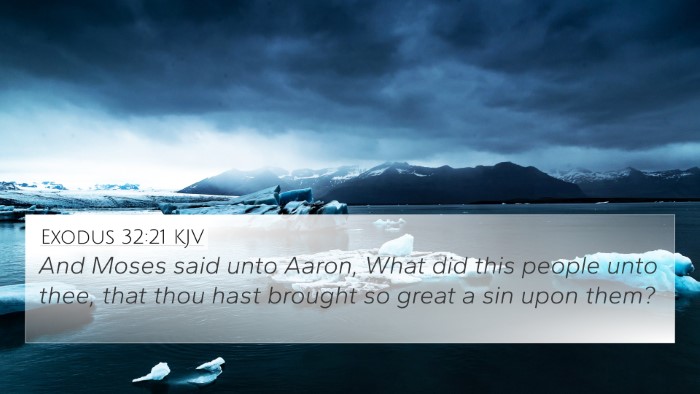Understanding Acts 14:18
Acts 14:18 reads: "And with these sayings scarce restrained they the people, that they had not done sacrifice unto them." This verse occurs during an encounter where Paul and Barnabas are mistaken for gods by the people of Lycaonia after performing a miracle. The meaning of this verse can be understood through insights from various public domain commentaries.
Commentary Insights
This verse illustrates a critical moment in the ministry of Paul and Barnabas, where they confront the misunderstanding of their identity and mission. Below are summarized insights from well-known commentators:
- Matthew Henry: He interprets this verse as reflecting the fragility of the crowd's faith, which can easily be swayed by extraordinary signs. Henry emphasizes how the apostles sought to redirect the people's worship away from themselves toward God, stressing the importance of humility and truth in ministry. The attempt by Paul and Barnabas to prevent sacrifices reveals their understanding that the power of God, not themselves, should be glorified.
- Albert Barnes: Barnes notes the difficulty the apostles faced in restraining the people who were intent on worshiping them. He highlights the tendency of humanity to elevate the messengers rather than the message and warns against the idolatry that can arise from miraculous works. Barnes also draws connections to how spiritual leaders must guide their followers to the true source of power—God alone.
- Adam Clarke: Clarke provides additional context regarding the cultural background of the Lycaonians, who believed in the presence of gods among them. He points out that this reaction shows a misunderstanding that the apostles sought to correct. Clarke's analysis underscores the importance of clear teaching in preventing the misapplication of divine acts.
Related Bible Verses
The following scriptures provide valuable cross-references that deepen our understanding of Acts 14:18’s themes:
- Romans 12:1: “I beseech you therefore, brethren, by the mercies of God, that ye present your bodies a living sacrifice, holy, acceptable unto God, which is your reasonable service.” This verse relates to the idea of true worship as a lifelong commitment rather than an isolated act of sacrifice.
- 1 Corinthians 3:5-7: “Who then is Paul, and who is Apollos? but ministers by whom ye believed... So then neither is he that planteth any thing, neither he that watereth; but God that giveth the increase.” This passage emphasizes the role of ministers as servants of God, echoing the necessity of directing worship towards the Creator.
- Acts 10:26: “But Peter took him up, saying, Stand up; I myself also am a man.” This moment of Peter effectively parallel’s Paul's response to a similar situation, reinforcing the principle that all glory belongs to God.
- John 5:44: “How can ye believe, which receive honour one of another, and seek not the honour that cometh from God only?” This scripture warns against the human inclination to seek honor from one another, reinforcing the core lesson of humility.
- Galatians 1:10: “For do I now persuade men, or God? or do I seek to please men? for if I yet pleased men, I should not be the servant of Christ.” This highlights the importance of fidelity to the gospel message, not being swayed by public perception.
- Exodus 20:3-5: “Thou shalt have no other gods before me... Thou shalt not make unto thee any graven image.” This connection emphasizes the commandments against idolatry, relevant to the incident as the people sought to honor Paul and Barnabas wrongly.
- Acts 14:15: “And saying, Sirs, why do ye these things? We also are men of like passions with you...” This verse directly precedes Acts 14:18 and encapsulates the apostles’ desire to correct the people’s misunderstanding.
The Importance of Humility in Ministry
The central theme of Acts 14:18 is the importance of humility in ministry and the need to direct worship to God rather than to human vessels. Such themes run throughout the Bible and serve as a reminder for believers to understand their roles as conduits of God’s grace rather than objects of worship.
Tools for Bible Cross-Referencing
For those interested in deeper study, various tools and methods exist to facilitate Bible cross-referencing:
- Utilizing a Bible concordance can help locate specific verses and themes across the scripture.
- A cross-reference Bible study guide connects themes, allowing for a comprehensive understanding of biblical texts.
- Engaging in cross-referencing Bible study methods enhances one’s ability to discern connections between verses and books.
- Investigating various Bible reference resources can unveil intricate relationships within the Scriptures, deepening one's faith.
- Practicing detailed comparative studies like comparing Pauline epistles can reveal theologous insights.
- Cross-referencing themes in the Bible strengthens understanding of God's overarching narrative through Scripture.
Conclusion
Acts 14:18 serves as a powerful reminder of the responsibility held by leaders within the faith to properly direct worship and admiration to God. By understanding this verse through the lens of respected biblical commentaries and cross-referencing related verses, believers can grasp a more robust interpretation and application of their faith. The insights gained from Acts 14:18, coupled with its supporting scriptures, enhance one's spiritual journey and commitment to living a life of true service and honor to God.







